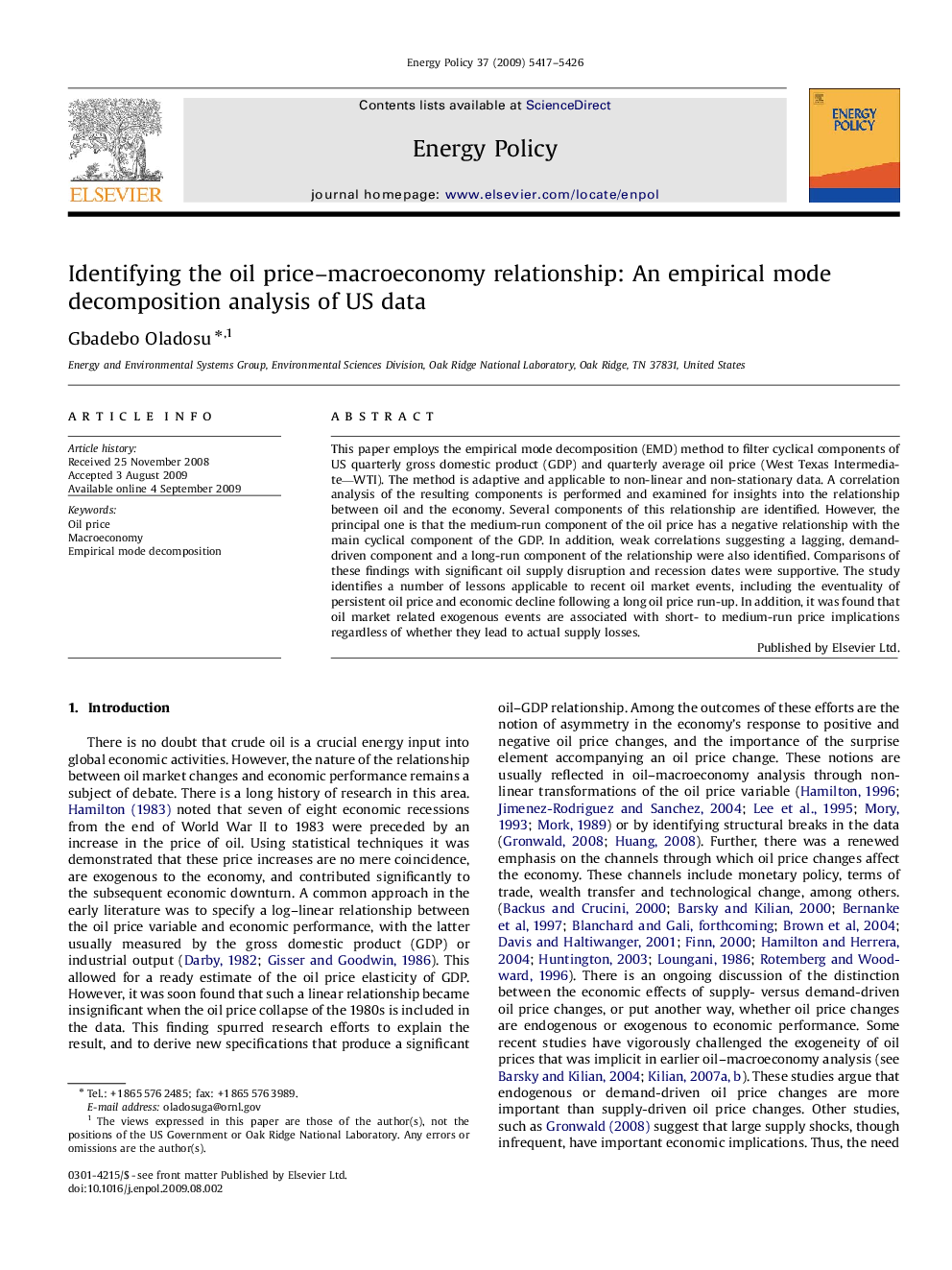| Article ID | Journal | Published Year | Pages | File Type |
|---|---|---|---|---|
| 995203 | Energy Policy | 2009 | 10 Pages |
This paper employs the empirical mode decomposition (EMD) method to filter cyclical components of US quarterly gross domestic product (GDP) and quarterly average oil price (West Texas Intermediate—WTI). The method is adaptive and applicable to non-linear and non-stationary data. A correlation analysis of the resulting components is performed and examined for insights into the relationship between oil and the economy. Several components of this relationship are identified. However, the principal one is that the medium-run component of the oil price has a negative relationship with the main cyclical component of the GDP. In addition, weak correlations suggesting a lagging, demand-driven component and a long-run component of the relationship were also identified. Comparisons of these findings with significant oil supply disruption and recession dates were supportive. The study identifies a number of lessons applicable to recent oil market events, including the eventuality of persistent oil price and economic decline following a long oil price run-up. In addition, it was found that oil market related exogenous events are associated with short- to medium-run price implications regardless of whether they lead to actual supply losses.
